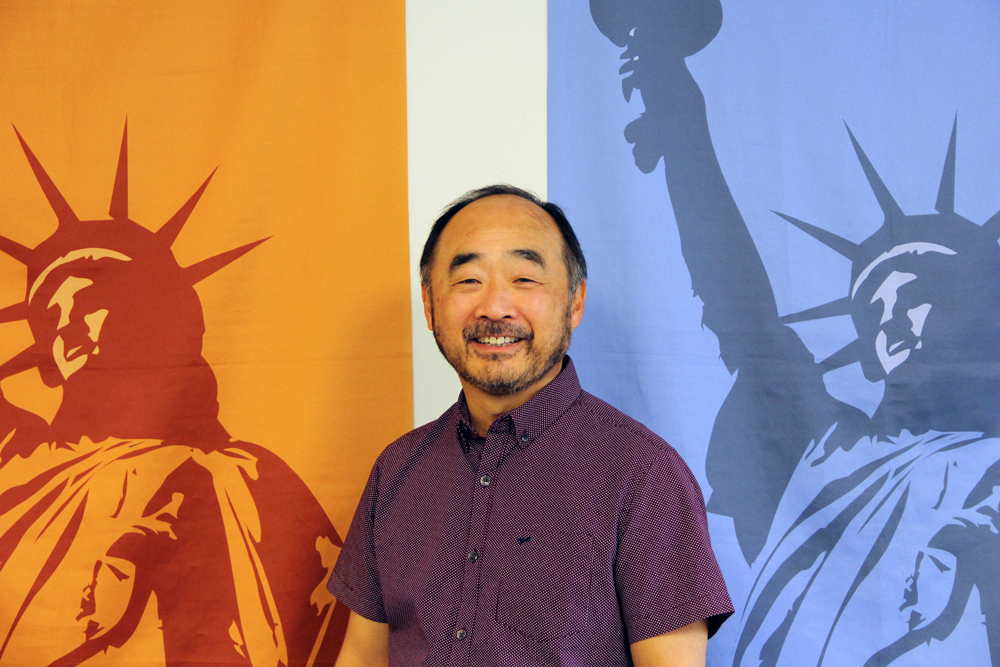Published:
Friday, August 21, 2015
Clarence Moriwaki has joined the ACLU of Washington staff as our Campaign Manager for Alternatives to the Death Penalty. He is heading up our work to end capital punishment in Washington, developing strategies to replace it with life imprisonment without the possibility of release.
Clarence brings to the position years of experience in government, legislative strategy and public relations. He has worked in communications and public policy positions with the Clinton Administration, Gov. Mike Lowry, then-U.S. Rep. Jay Inslee, the Washington State Senate, the Kitsap County Board of Commissioners, Sound Transit, and a host of other institutions. He also served as a Tukwila City Council Member and was on the ACLU Board of Directors in the early 2000s. He’s a graduate of the University of Washington and was born and raised in Moses Lake.
The veteran advocate for justice was most recently the visionary and strategist behind the creation of the Bainbridge Island Japanese American Exclusion Memorial. The memorial honors and commemorates the first of 120,000 Japanese Americans who were forcibly removed from the West Coast and incarcerated during World War II. Through his work, the site grew from the idea of a small plaque to a large memorial that was named a National Historic Site in 2008. The memorial is just one example of Clarence’s long-time advocacy for civil rights and civil liberties and his political work in the Pacific Northwest.
From his experience working on Japanese American incareration issues, he has seen that major shifts in public sentiment can happen for issues that long seemed impervious to change. “When Roosevelt signed the executive order for the forced removal and exclusion of Japanese Americans, Congress and virtually the entire nation were silent except for some rare individuals. Now, as everyone knows the true history and facts, people are shocked that our nation could have violated fundamental constitutional rights and liberties,” he points out.
Now Clarence is excited by the increasing momentum he’s seen for abolishing the death penalty. He points to many reasons for the shift: “It costs much more than life without the possibility of release. The risk of executing an innocent person is real. Years – even decades – of constitutionally mandated legal process is not only not swift, but it’s excruciatingly painful for the families and loved ones of murder victims. And it obviously does not deter murders.”
Besides being a civil rights advocate, Clarence is also a film buff, news junkie, sunset chaser, and he loves animals but doesn’t eat them.
Clarence brings to the position years of experience in government, legislative strategy and public relations. He has worked in communications and public policy positions with the Clinton Administration, Gov. Mike Lowry, then-U.S. Rep. Jay Inslee, the Washington State Senate, the Kitsap County Board of Commissioners, Sound Transit, and a host of other institutions. He also served as a Tukwila City Council Member and was on the ACLU Board of Directors in the early 2000s. He’s a graduate of the University of Washington and was born and raised in Moses Lake.
The veteran advocate for justice was most recently the visionary and strategist behind the creation of the Bainbridge Island Japanese American Exclusion Memorial. The memorial honors and commemorates the first of 120,000 Japanese Americans who were forcibly removed from the West Coast and incarcerated during World War II. Through his work, the site grew from the idea of a small plaque to a large memorial that was named a National Historic Site in 2008. The memorial is just one example of Clarence’s long-time advocacy for civil rights and civil liberties and his political work in the Pacific Northwest.
From his experience working on Japanese American incareration issues, he has seen that major shifts in public sentiment can happen for issues that long seemed impervious to change. “When Roosevelt signed the executive order for the forced removal and exclusion of Japanese Americans, Congress and virtually the entire nation were silent except for some rare individuals. Now, as everyone knows the true history and facts, people are shocked that our nation could have violated fundamental constitutional rights and liberties,” he points out.
Now Clarence is excited by the increasing momentum he’s seen for abolishing the death penalty. He points to many reasons for the shift: “It costs much more than life without the possibility of release. The risk of executing an innocent person is real. Years – even decades – of constitutionally mandated legal process is not only not swift, but it’s excruciatingly painful for the families and loved ones of murder victims. And it obviously does not deter murders.”
Besides being a civil rights advocate, Clarence is also a film buff, news junkie, sunset chaser, and he loves animals but doesn’t eat them.




